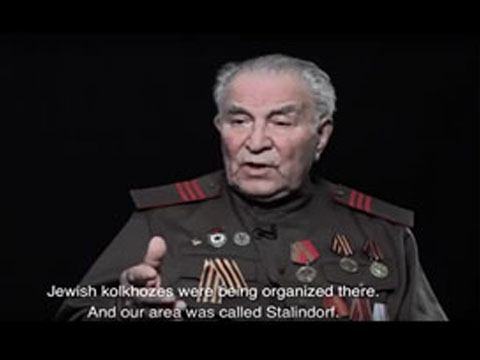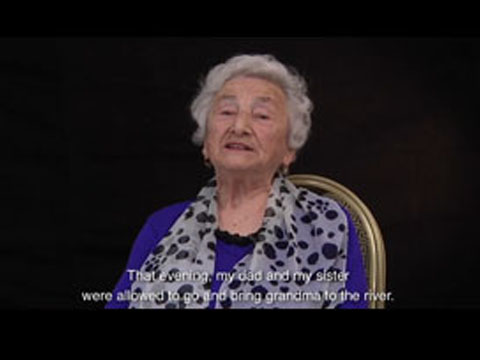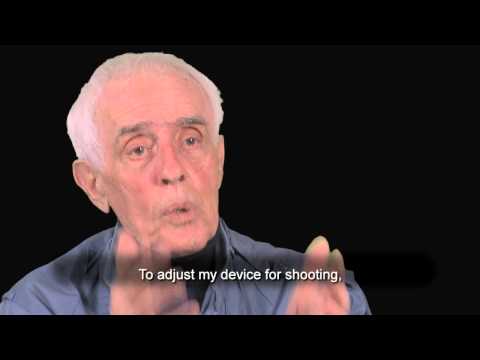
Mikhail Rozenshteyn
1922 Norinsk, Ovruch District, Zhitomir Region
Interviewed In: Toronto, Ontario
“There were considerable casualties”
Tank Driver Belarusian Front, Poland, Battle Of Berlin
Vladimir’s family moved to Moscow when he was 8. He was drafted in 1943 and sent to a military driving school. Upon graduation he joined the First Belorussian Front. Vladimir survived an attack shortly after arriving. “I went to bed. All of a sudden my bunk bed collapsed. I opened my eyes and saw the daylight. I thought to myself “What a good sleep I’ve had!” I looked up and saw 2 parachutes hanging. Those were big parachutes for people. When I looked down I saw a flare. There was nobody around. Everyone was in the trench we had dug earlier. My carbine
stood near a tree. I grabbed the carbine and rushed down to where the people, the guys were. As it turned out, the railway station traffic controller was working for the Germans”.
Vladimir was later sent to Ukraine. The Ukrainians also viewed The Soviet Union as an occupying power and sometimes attack Vladimir’s unit.
“Our Army was advancing successfully. We passed…we reached the Western areas of Ukraine and Belarus annexed in ’39. We were advancing in the territory of Ukraine. Belarus was OK. While in Ukraine they weren’t happy with the Soviet power. That’s why they collaborated with the Germans. They shot us in the back”.
Vladimir’s unit advanced to Berlin as part of Operation Bagration.
“When approaching Berlin… there was town Kusteln. The Germans ran out of fuel. They buried their tanks. I mean only a gun was sticking out. There were considerable casualties… vehicles, tanks, etc. were knocked down too. The battlefield was strewn with machinery. Our army fought its way to Berlin. Our 2nd Tank Army was involved in the Berlin Battle. Afterwards a part… Berlin was encircled. We just moved on. On April 30th the Berlin Battle was over. We fought our way forward for 8 more days. At that time we were advancing more or less rapidly… because the Allies had landed there. The Germans didn’t offer any resistance. We were marching on”.
After the war, Vladimir stayed in the army for a short time. He was involved in the deconstruction of Ravensbruck concentration camp. Vladimir was demobilized in 1949 and worked as a locomotive driver

1922 Norinsk, Ovruch District, Zhitomir Region
Interviewed In: Toronto, Ontario

Born Zguritsa, Bessarabia (Moldova)
Interviewed In: Edmonton, Alberta
Medals Awarded: Victory over Germany In The Great Patriotic War

Born December 25th 1922 in Riga, Latvia.
Interviewed In: Toronto, Ontario
Medals Awarded: Order of the Patriotic War (1st and 2nd Class), Medal for Defense of Leningrad and Victory over Germany In The Great Patriotic War